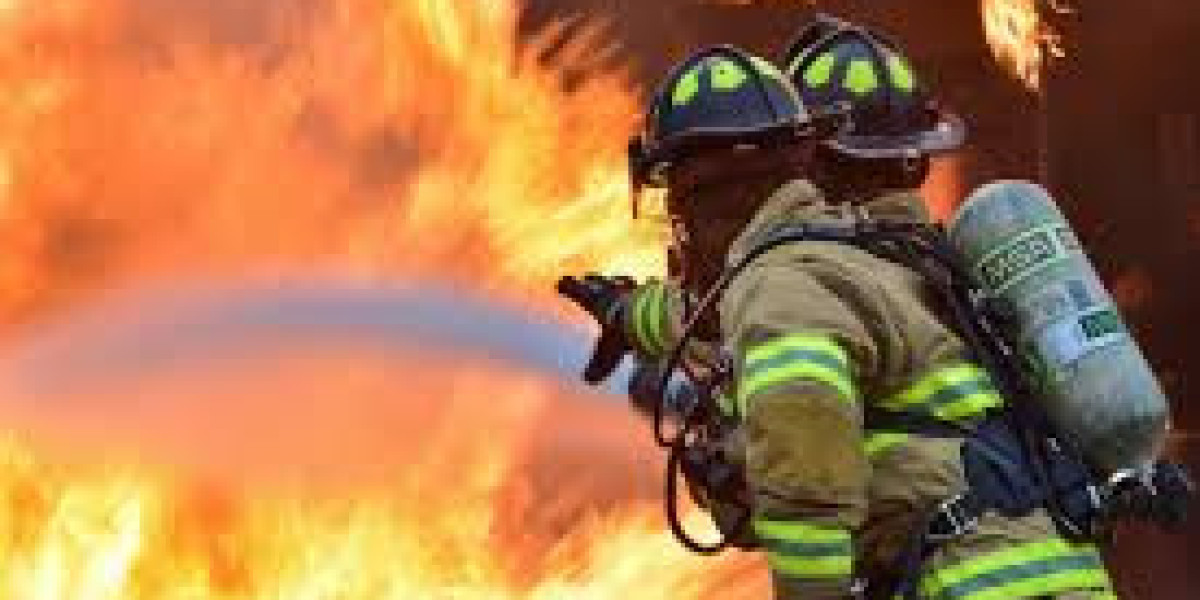In today's world, the threat of fire in high-risk areas and critical infrastructure cannot be overstated. These areas often include manufacturing plants, construction sites, hospitals, and energy facilities, where even a small fire could have disastrous consequences. Fire watch security services play a crucial role in mitigating these risks and ensuring the safety of both people and property.
Understanding the Role of Fire Watch Security
Fire watch security services are designed to monitor and protect areas that are vulnerable to fire hazards, especially during times when fire suppression systems, like alarms or sprinklers, are non-functional. These security guards are specially trained to identify potential fire hazards, implement safety measures, and take immediate action in the event of an emergency.
Their presence is often required when fire protection systems are down for maintenance or when specific fire risks, like welding or hot work, are present in the area. By patrolling the premises, monitoring high-risk zones, and staying alert for signs of danger, they ensure that any fire outbreak can be contained or controlled before it escalates.
High-Risk Areas: Why Are They Vulnerable?
High-risk areas are typically defined as places where a fire can cause significant damage or spread quickly due to the nature of the materials present or the activities taking place. Some of the most vulnerable high-risk zones include:
Construction Sites: Exposed electrical wiring, flammable materials, and welding work make construction sites prone to fire outbreaks. With large, open areas and limited immediate fire control, the risk is amplified.
Industrial Plants: Facilities handling chemicals, gases, or combustible materials are at higher risk due to the potential for accidental ignition.
Energy Facilities: Power plants, refineries, and other energy-related infrastructure have intricate systems where a small malfunction can lead to fire.
Hospitals: While not typically viewed as high-risk, hospitals contain oxygen-rich environments, flammable chemicals, and vulnerable individuals, making fire prevention critical.
The Importance of Fire Watch Security Services in Critical Infrastructure
Critical infrastructure refers to the essential facilities, services, and installations necessary for the functioning of society. This includes sectors like energy, healthcare, water systems, and communications. The disruption of these services due to fire could have catastrophic consequences, ranging from economic loss to endangering public safety.
Fire watch security services offer a specialized solution to protect these critical infrastructures by:
Immediate Risk Detection: Fire watch guards patrol areas continuously, identifying fire hazards before they become major issues. In environments like energy plants, small sparks or overheating equipment could cause massive damage if not caught early.
Response Coordination: In the event of a fire, fire watch personnel act as the first line of defense. They coordinate emergency responses, contact the fire department, and assist in evacuating the area if necessary. Quick action can mean the difference between a minor incident and a full-scale disaster.
Ensuring Compliance with Fire Codes: Many critical infrastructures must comply with stringent fire codes and regulations. Fire watch services help maintain these standards by ensuring that all safety protocols are followed, especially during times when fire prevention systems are down for maintenance or upgrade.
Providing Temporary Protection: During construction, renovation, or repairs in critical infrastructure, fire suppression systems may be temporarily unavailable. Fire watch security ensures that these periods don’t compromise safety by offering continuous monitoring and risk management.
How Fire Watch Security Guards Work
Fire watch security personnel typically follow a strict set of protocols to ensure maximum safety:
Patrols and Monitoring: They regularly patrol high-risk zones to identify any sign of fire hazards, such as exposed electrical systems, hot work, or combustible materials.
Documentation: Detailed logs are maintained of their observations and any actions taken, ensuring that all risks are thoroughly documented and can be addressed later.
Emergency Procedures: If a fire is detected, fire watch guards are trained to follow emergency protocols, including contacting fire departments, activating alarms, and assisting with evacuation.
Inspection of Fire Safety Equipment: They ensure that fire extinguishers, alarms, and emergency exits are in working order, providing an extra layer of safety assurance.
The role of fire watch security services in protecting high-risk areas and critical infrastructure cannot be overstated. Whether it’s a construction site, an industrial plant, or an energy facility, these trained professionals help ensure that potential fire hazards are monitored and addressed before they can cause significant harm. By acting as a crucial line of defense, they protect both people and assets, keeping essential services running safely and securely.








